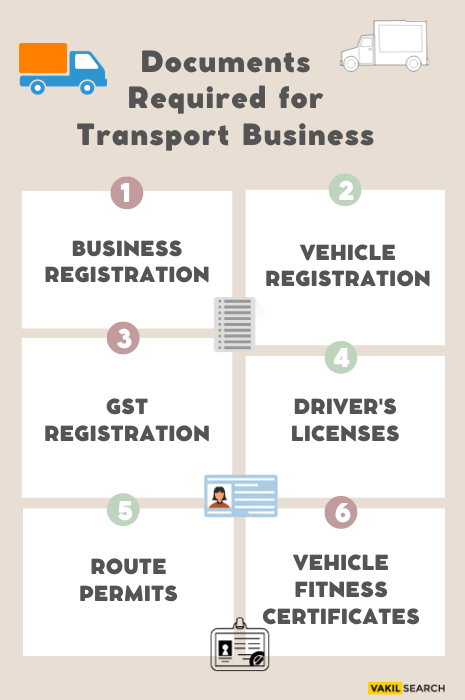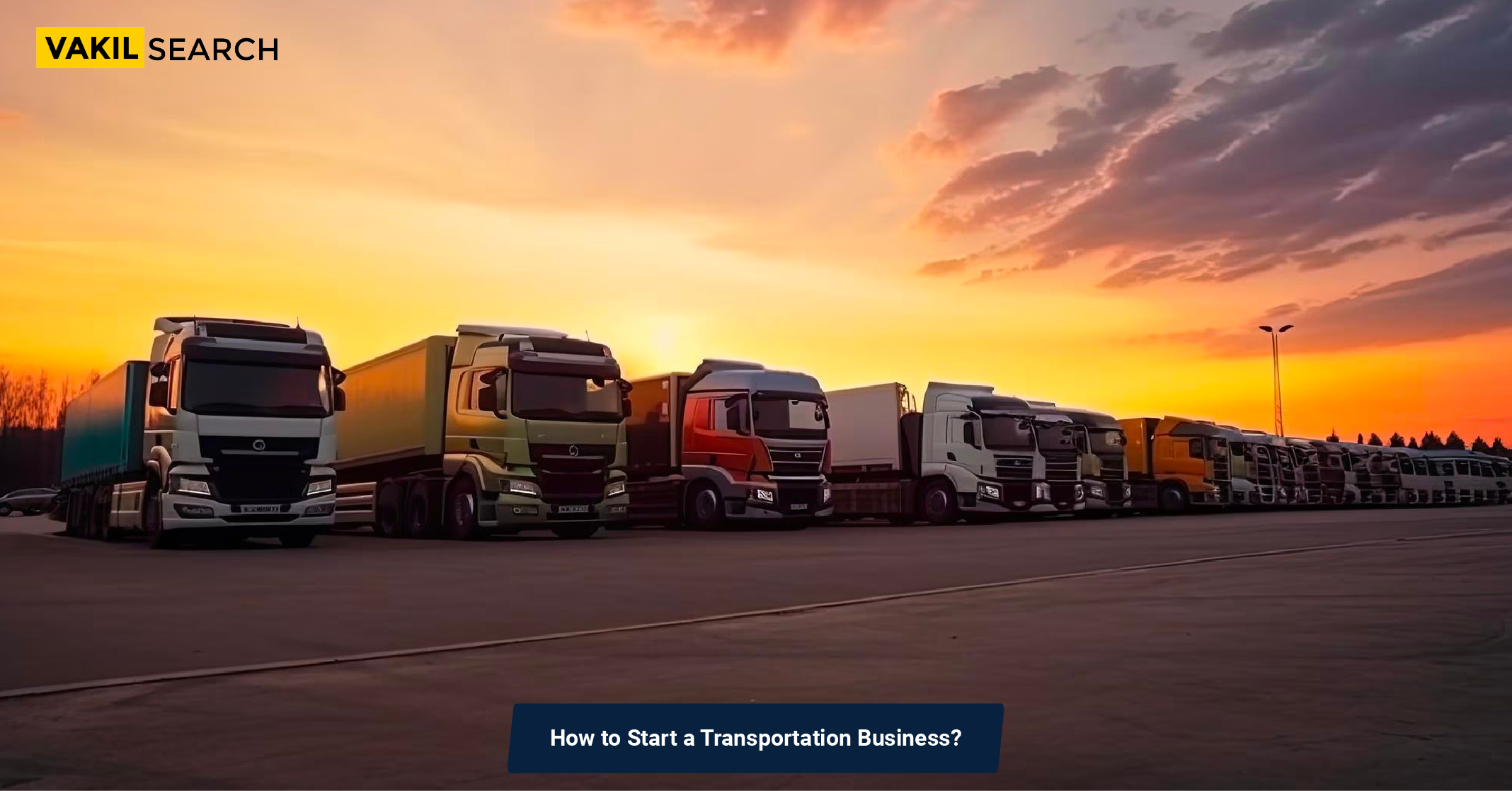Transportation businesses play a vital role in the global economy, facilitating trade and commerce between countries and regions. Know how the industry works
The transportation business involves the movement of goods or people from one location to another, and it plays a crucial role in the economy. Starting a transportation business can be a lucrative venture, but it requires careful planning, compliance with regulations, and a solid business strategy.
Why Should You Start a Transport Business?
Starting a transportation business can offer several advantages:
-
High Demand:
There is a consistent demand for transportation services due to the need for moving goods and people.
-
Revenue Potential:
Transportation businesses can generate significant revenue, especially in industries like logistics and passenger transport.
-
Diverse Opportunities:
There are various niches within the transportation sector, allowing you to choose a focus that aligns with your interests and resources.
-
Growth Potential:
As economies grow and trade increases, transportation businesses have the potential to expand and diversify.
What Are the Top Transportation Business Ideas?
Some popular transportation business ideas include:
- Freight Hauling: Starting a trucking company to transport goods locally or nationally.
- Courier and Delivery Services: Offering express delivery and courier services.
- Ridesharing: Operating a ridesharing service or taxi company.
- Limousine Service: Providing luxury transportation for special events.
- Boat or Yacht Charter: Offering boat or yacht rental services.
- Moving and Relocation: Assisting individuals and businesses with moving and relocation services.
- Ambulance Service: Providing emergency medical transportation.
- Bicycle Courier: Offering eco-friendly courier services in urban areas.
Documents Required for Transport Business in India
To start a transportation business in India, you will need several documents, including:
- Business Registration: Register your business as a sole proprietorship, partnership, or company, depending on your preference
- Vehicle Registration: Register and obtain permits for your vehicles, including commercial vehicle registration and insurance
- GST Registration: Register for GST if your annual turnover exceeds the threshold
- Driver’s Licenses: Ensure that your drivers have the necessary commercial driver’s licenses (CDLs) and permits
- Route Permits: Depending on your type of transportation, you may need route permits or inter-state permits
- Vehicle Fitness Certificates: Ensure that your vehicles meet safety and emissions standards and obtain fitness certificates.
How to Start a Transportation Business in India?

You can make PVT limited company registration for transportation business in India, follow these general steps:
- Market Research: Identify your target market, competitors, and the specific transportation niche you want to enter
- Business Plan: Create a comprehensive business plan outlining your goals, budget, and strategies
- Legal Formalities: Register your business, obtain necessary permits, and comply with taxation and regulatory requirements
- Fleet Acquisition: Acquire or lease vehicles for your transportation business
- Hire and Train Staff: Recruit and train drivers, mechanics, and support staff as needed.
- Marketing and Promotion: Develop a marketing strategy to attract clients and promote your services
- Operations: Establish efficient logistics and operational procedures
- Safety and Compliance: Ensure that your vehicles and operations comply with safety regulations
- Insurance: Obtain appropriate insurance coverage for your vehicles and business
- Launch: Launch your transportation business and start serving clients.
Creating a Transport Business Plan in 2024
Creating a transport business plan in 2023 will require you to consider the following key factors:
- The type of transport business you want to start: There are a variety of transport businesses that you could start, such as a taxi service, a trucking company, a courier service, or a bus company. The type of business you choose will depend on your interests, skills, and resources.
- Your target market: Who are you planning to serve with your transport business? Once you know your target market, you can tailor your services and marketing efforts to meet their needs.
- Your competitive landscape: Who are your competitors? What are they doing well? What could they be doing better? Understanding your competitive landscape will help you to develop a competitive advantage.
- Your financial plan: How much money will you need to start your transport business? How will you generate revenue? What are your operating costs? It is important to have a detailed financial plan in place before you launch your business.
Here Is a Step-By-Step Guide to Creating a Transport Business Plan in 2024
- Executive summary: The executive summary should provide a brief overview of your business plan, including your business concept, target market, competitive advantage, and financial projections.
- Company overview: This section should provide more detail about your business, such as its history, mission statement, and values.
- Industry analysis: This section should provide an overview of the transport industry, including its trends, challenges, and opportunities.
- Customer analysis: This section should describe your target market in detail, including their needs, wants, and demographics.
- Competitive analysis: This section should identify your competitors and analyse their strengths and weaknesses.
- Marketing plan: This section should outline your marketing strategy for attracting and retaining customers.
- Operations plan: This section should describe how you will operate your business, including your fleet of vehicles, staffing, and technology.
- Management team: This section should introduce your management team and highlight their experience and expertise.
- Financial plan: This section should include your financial projections for the first three to five years of your business.
When doing company registration for your transport business plan, it is important to be realistic and specific. Your plan should be a living document that you update regularly as your business grows and changes.
License Required to Start a Transport Business
The licenses required to start a transport business in India may include:
- Goods Carrier License: For transporting goods within or between states
- Passenger Carrier License: For passenger transport, such as buses or taxis
- National Permit: Required for interstate transport
- GST Registration: For taxation purposes
- Vehicle Fitness Certificate: To ensure vehicle safety and compliance.
Transportation Business FAQs
What are transport services in business?
Transport services in business refer to the activities involved in moving people, goods, or cargo from one location to another. These services are an essential part of supply chains and logistics, ensuring the efficient movement of products and people. Transport services can encompass various modes of transportation, including road transport (trucking), rail, air, sea, and even specialised services like courier and parcel delivery.
What is the best way to initiate your transport business plan?
Initiating a transport business plan involves several key steps:
- Market Research: Research the transportation industry, identify your target market, and understand your competitors.
- Business Concept: Determine the specific type of transportation service you want to provide, such as freight hauling, passenger transport, or specialised transport.
- Legal Requirements: Research and comply with the legal and regulatory requirements for your chosen niche and location.
- Financial Planning: Create a detailed financial plan, including startup costs, operating expenses, and revenue projections.
- Fleet Acquisition: Acquire or lease the necessary vehicles and equipment.
- Hiring and Training: Recruit and train drivers and staff.
- Marketing Strategy: Develop a marketing plan to attract clients.
- Operational Setup: Establish efficient operational procedures and safety protocols.
A well-structured business plan that considers these factors is essential for a successful start.
Is the transport business profitable?
The profitability of a transport business can vary widely based on several factors, including the type of transportation service, location, competition, operating efficiency, and market demand. Some transport niches, such as long-haul trucking, can be profitable, while others, like taxi services, may face stiff competition and lower profit margins. Careful planning, cost management, and effective marketing can contribute to the profitability of a transport business.
What documents are required for transport business in India?
Documents required for a transport business in India typically include:
- Goods Carrier License: For transporting goods within or between states..
- Passenger Carrier License: For passenger transport services like buses or taxis.
- National Permit: Required for interstate transport.
- GST Registration: For tax purposes.
- Vehicle Fitness Certificate: To ensure vehicle safety and compliance.
These are some of the essential documents, and specific requirements may vary based on the type of transport service and state regulations.
In what ways can you make money in the transport business?
There are several ways to generate revenue in the transport business, including:
- Freight Hauling: Transporting goods and cargo for clients, charging based on distance, weight, or volume
- Passenger Transport: Providing transportation services for passengers, such as buses, taxis, or ride-sharing
- Logistics and Warehousing: Offering additional services like warehousing, inventory management, and distribution
- Courier and Parcel Delivery: Delivering packages and parcels on behalf of e-commerce companies and individuals
- Specialised Transport: Providing specialised services such as refrigerated transport, hasardous materials transport, or heavy machinery transport
- Contract Services: Securing long-term contracts with businesses for their transportation needs
- Value-Added Services: Offering services like tracking, insurance, and expedited delivery for premium fees.

